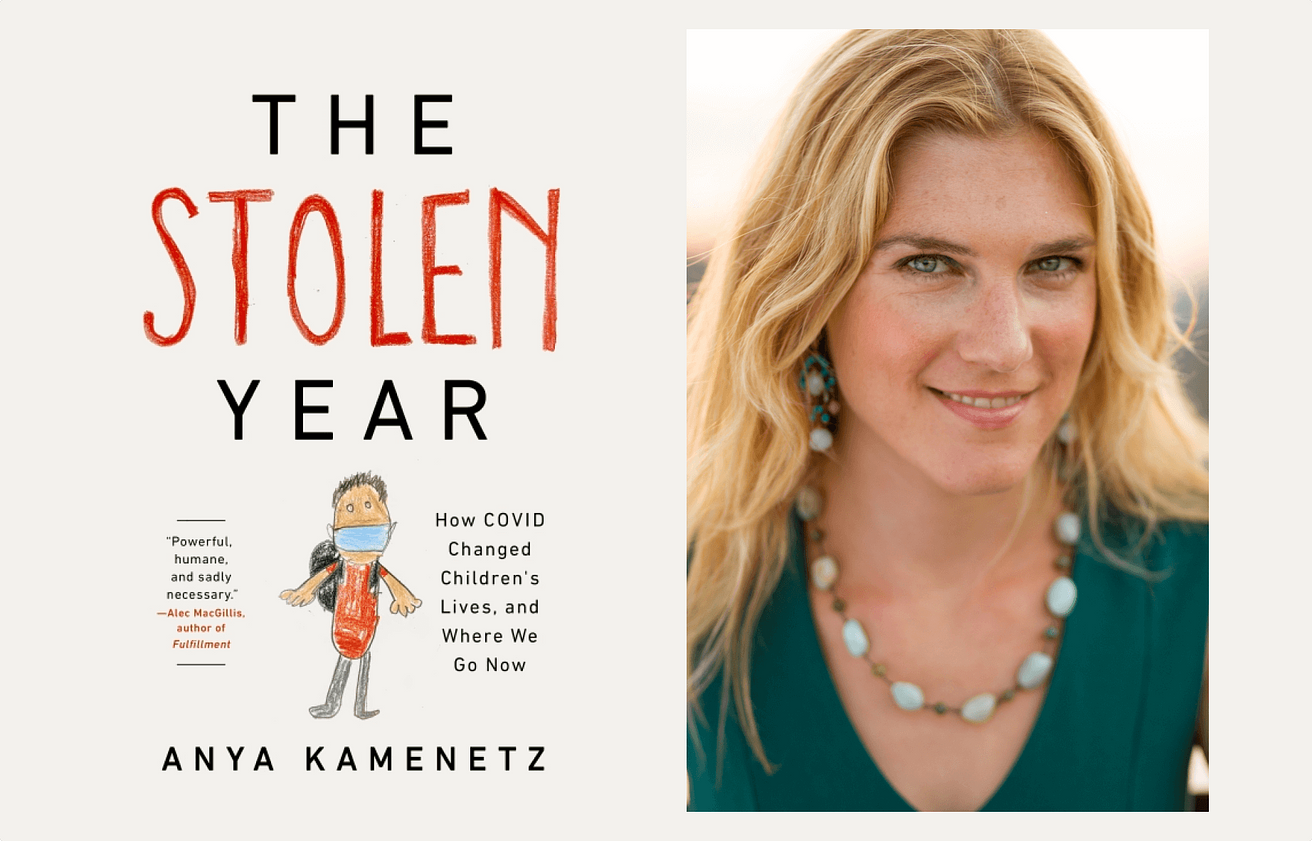As a young reporter right out of college, Anya Kamenetz stumbled upon the education sector when her mentor suggested that she explore the politics currently affecting her generation, the Millennial generation. She chose to cover student debt, an issue that had started gaining recognition. Soon, Kamenetz found herself touring the country talking to students about their college experiences, which eventually led to her first book, Generation Debt.
Now, Kamenetz is an award-winning and longtime NPR education correspondent with several acclaimed nonfiction books covering topics from standardised testing to managing screen time. Most recently, she released The Stolen Year: How Covid Changed Children’s Lives, And Where We Go Now (Public Affairs, 2022), a book that features families’ stories during the height of the pandemic.
Stories of Hope
Kamenetz wrote her newest book for the families that were impacted by the pandemic. She intended the book to be like a history book, shining light on personal stories that would have otherwise gone unseen.
Her book has not only given families a chance to tell their stories, but has also been a resource for driving more conversations about the realities of what happened to children during the pandemic and why it happened. According to Kamenetz, “In the media responses to my book, there has been a lot of energy in understanding that we did this badly and differently compared to peer countries [...] and that is not something that we heard a lot about.”
However, among these difficult stories, there were also glimmers of hope that remind us of how humanity steps up to care for one another throughout difficult times.
For example, we hear about Jonah, an eleven-year-old with autism and dyslexia who was making a lot of progress in school prior to the pandemic. Online school was different- he could not concentrate for more than a few minutes at a time and was often sent into fits of range. At the same time, Jonah’s best friend, Khamla, a recent arrival from Laos was struggling with family problems.
Despite the fact that they had full-time jobs, a child in special education, and a sick parent, Jonah’s parents welcomed Khamla into their home as emergency foster parents.
When Kamenetz visited them in May 2021, she found the two boys living together as brothers. “Jonah was like: ‘I could not have gotten through this pandemic without my friend. I am so happy that I had a friend.’”, shared Kamenetz, “It’s just the courage that the family showed and the incredible compassion that they had to not even think for a second if they could handle another kid in the middle of this that is really hopeful”.
Resilience & Innovation
For Kamenetz, the most urgent issue in education today is the pace of change in our society. From the unprecedented issues like COVID-19 to foreseeable challenges like climate change, the education system needs to be able to keep up and adapt in response.
Luckily, as the pandemic has shown, education is not just limited to schools. Education includes an entire community of people - teachers, parents, friends, neighbours, and more - that all come together to raise our children. When one member of the community cannot fulfil their role in education, such as when schools were closed, we can rely on others and especially innovations to fill the gaps.
Kamenetz mentions that there were a lot of innovations springing up during the pandemic as there was “a lot of invitation for people to come up with different models”. Organisations stepped up to mentor students online, communities set up learning pods, and there was a rise in interest for passion-driven learning.
In the same way, we see innovators rising up to meet the challenges that need to be solved all over the world. This year, many innovators have been working on improving teacher professional development, 21st century skills, student wellbeing & mental health, and ensuring equity for students. You can hear what some of the top global innovations are doing in education during the live stream of HundrED’s Innovation Summit 2022 on October 26-28.
Takeaways
The pandemic has had a huge impact on children in almost all of the countries around the world. With declining literacy rates, skyrocketing drop-out rates, and increased struggles with mental health, it is no secret that we will be dealing with the consequences of the COVID-19 outbreak for years to come. Although Kamenetz emphasised the failure of the United States in prioritising children’s wellbeing during this time, we also know that the impact of the pandemic has disproportionately impacted children in developing countries.
For instance, according to Save the Children, children in poorer countries have lost 66% more of their lifetime number of school days during the pandemic than their peers in richer countries. Being out of school is particularly detrimental for girls who are subject to the increased risk of child marriage and adolescent pregnancy.
What we can take away, though, is that we need to take responsibility for the wellbeing and education of all children globally. As Kamenetz put it, “...that is our global responsibility because those are our global children and our next generation of workers.”
She hopes that the takeaway from this interview is “...that it is our collective responsibility to make sure that these kids are not marked for life by this experience.”
During HundrED’s Innovation Summit 2022 on October 26-28, we will celebrate the successes of education innovations around the world that have been selected for our Global Collection 2023. We will also hear from speakers, like Kamenetz, about the beautiful risk of innovation, including themes such as resilience and the future of education. You can sign up to watch the livestream here.
